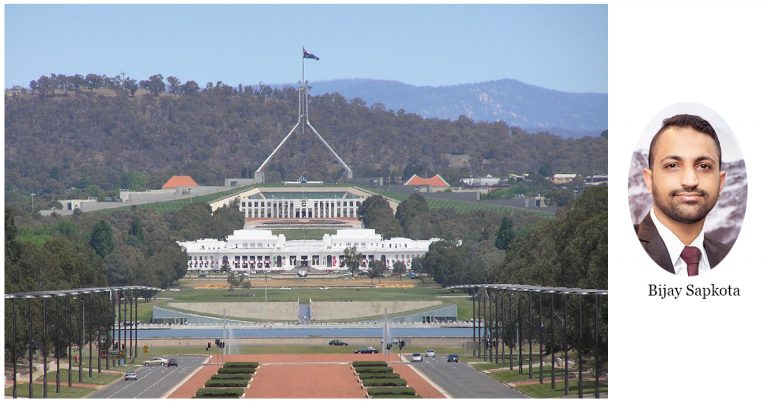
An opinion by Bijay Sapkota, former President of Council of International Students Australia (CISA)
We are indeed in an unprecedented situation – a virus that broke out in Wuhan, China has spread to 198 countries, and has communicated to above 800,000 people within three months. No one had predicted the numbers at the disease’s onset; and health experts are now of the opinion the number will cross one million.
There probably isn’t a single person in this world that is unaffected by the pandemic. National borders have been shut, economies have come to a grinding halt, and health systems across the world are being over-burdened. Australia, to a certain extent, handled the situation well – unlike the US, the UK, and several European nations, synchronized efforts across all tiers have helped in the prevention of rapid escalation.
However, like other nations, Australia is affected too – and with it all components of Australia. If the citizen/resident who tended bars in a vibrant Sydney CBD bar has had his weekly shift cut, so has the international student who performed the same job. Both pay an equal amount of tax, both contribute equally to the national economy, then why the unfairness in treatment when the time for support arises?
International students in Australia are suffering equally, if not more during the health crisis. A valid argument once put forth to me was, ‘students have support from their parents/guardians in their home country.’ However, to dispel the argument, the corona virus isn’t affecting only Australia in particular; it has taken over the globe, including the student’s home country. Nations like Nepal and India, from where a significant population of international students arrive every year are in lockdown – how are parents/guardians going to support the students, and even if they do, for how long?
Just like us, times are unprecedented for the parents/guardians too. We have to keep in mind that economies outside Australia are suffering equally – if the crisis continues for a prolonged period, a majority of the students will be asked to return home by their parents/guardians.
Meanwhile, for international students in Australia, an uncertainty looms in the air – they are unemployed, in a foreign land, and don’t know where their next meal will come from. Along with that, there is an added trauma of attending online classes. All universities, colleges and institutions should immediately provide an option for international students to defer their studies without any complexities around administrative procedures through operational efficiency in the institution; that is if the student wishes to.
The reasons being:
- Mental Well-being: Compulsory online lectures amidst the health crisis add to the woes of an international student – therefore, affecting their mental health. Students aren’t in a position to comprehend lectures inside their locked up apartments when other resources are scarce – they have too much on their mind.
- Quality of education: Students choose international education because of the overall experience – not for the degree alone. An online class voids students of important experiences such as networking, university/college infrastructure and other institutional resources. If an international student wanted to pursue an online course, s/he would have done it from the comfort of their home. Plus, fees charged towards online classes should be significantly cheaper. International students should be offered discounts in their course fees if they wish to study online.
The government is underestimating the contribution of international education towards the economy of Australia. The underestimation could have a huge impact on Australia’s education sector. International students, directly and indirectly create 260,000 jobs in the Australian economy.
According to a report by The Hon Dan Tehan MP, Minister for Education, published on 5th Feb, 2019, “Australia’s world-class international education sector contributed $34 billion to the local economy last year, an increase of 15.3 per cent”. Minister for Education Dan Tehan said Australia hosted a record 690,000 international students in 2018 that paid tuition fees and spent money on living costs.
“Over decades of investment, hard work and the commitment of world-class scholars, teachers and administrators, Australia has established a global reputation as a leader in higher education,” MrTehan said.
My question to the government would be ‘do we throw away decades of hard work by not recognizing the needs of the student during such a crucial hour?’
Or, would we want to set an example to the world by accepting international students as our own?
About the author:

Bijay is a strong advocate for International Students in Australia, most recently demonstrated by hissuccessful appointment as National President for the Council of International Students Australia (CISA)for a two-year period. He has also represented the International Education sector on a number ofBoards, Committees and Student Associations and supported International Students of Nepalese originwith significant fundraising, campaigning and volunteering activities. Bijay has a growing media presenceand has been interviewed and quoted in matters relating to International Education and other youth affairs.
The views expressed in the article are of the author, and do not reflect the editorial stance of Nepalese Voice.





